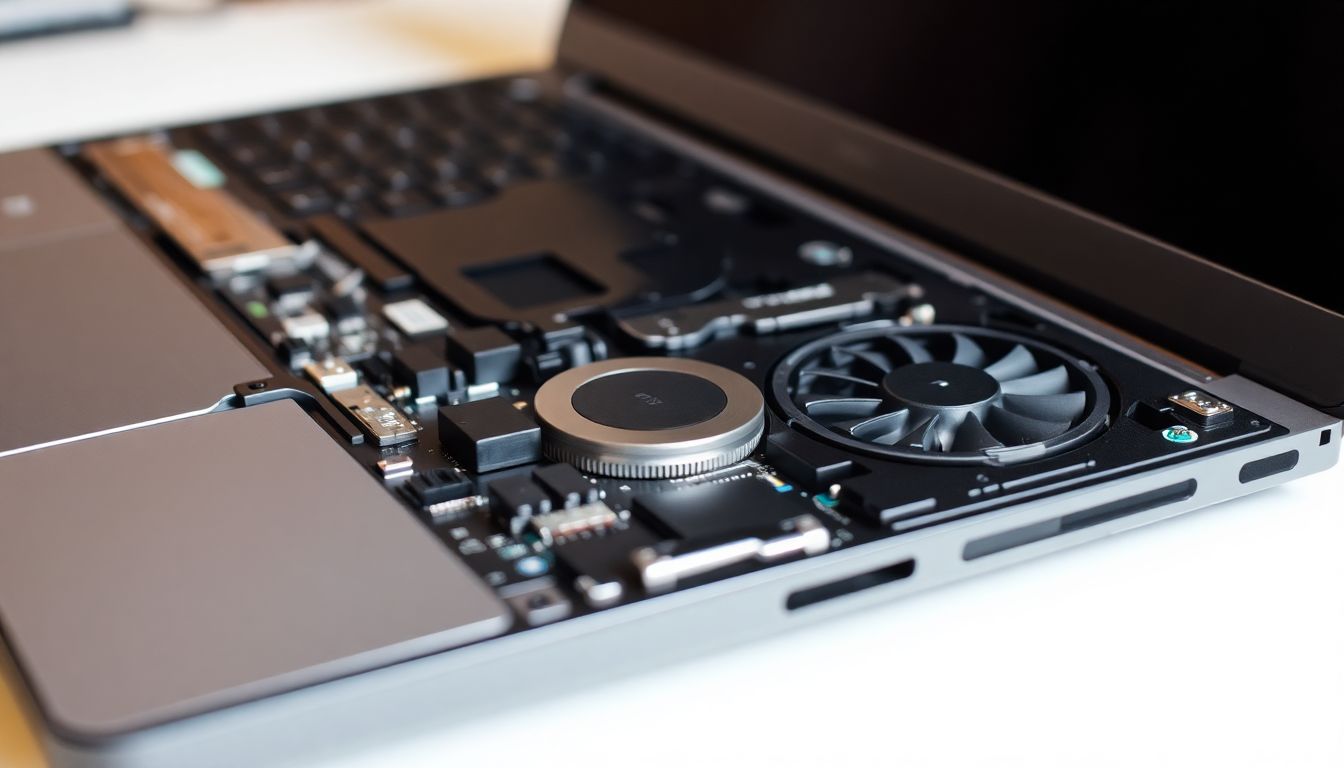How to Fix Your Laptop's Hang Issue: A Comprehensive Guide

Laptop freezes can be frustrating. You're in the middle of an important task, and suddenly, everything stands still. The screen feels like it's stuck in time, and productivity takes a nosedive. It's not just an annoyance; it can feel like your whole day is on hold. This guide will help you tackle laptop hang issues.
Understanding Laptop Hangs: Causes and Symptoms
Common Causes of Laptop Hangs:
Several issues can cause your laptop to hang. Hardware problems like insufficient RAM and overheating are common culprits. Software issues, such as outdated drivers or malware, can also play a big role. According to a recent survey, about 30% of laptop hangs arise from software conflicts, while 25% are due to hardware failures.
Identifying the Symptoms:
Laptop hangs can show up in various ways:
- Frozen screen
- Unresponsive mouse/keyboard
- Application crashes
- Blue screen of death
Recognizing these signs early can help you act quickly. One way to visualize this is through screenshots of common symptoms.
Differentiating Between Hangs and Slow Performance:
It’s crucial to distinguish between a temporary hang and slow performance. A hang means nothing is responsive, while slow performance might allow some actions. Understanding this difference can guide your troubleshooting approach.
Software Troubleshooting: Fixing Hang Issues Through Software Updates
Updating Operating System:
Keeping your operating system up to date can resolve compatibility and bug issues. For Windows, go to Settings > Update & Security > Windows Update. For macOS, click the Apple icon and select Software Update.
Updating Drivers:
Outdated or corrupted drivers can lead to hangs. Check your hardware manufacturer’s website for the latest drivers. Just as cars need the right fuel, your laptop needs up-to-date drivers for smooth operation.
Running a Malware Scan:
Malware can disrupt your system, causing instability and hangs. Use reputable antivirus software to regularly scan your laptop. Did you know that approximately 40% of computer issues can trace back to malware infections?
Hardware Troubleshooting: Addressing Physical Issues
Checking for Overheating:
Overheating is a major reason for hangs. Dust and dirt can block vents, making it hard for your laptop to cool down. Clean the vents regularly and consider a cooling pad for extra airflow. You can monitor CPU/GPU temperatures using tools like HWMonitor.
RAM and Storage Check:
If your RAM is overloaded or your hard drive is nearly full, you might face hanging issues. Check RAM usage by opening Task Manager (Ctrl + Shift + Esc on Windows) or Activity Monitor (Cmd + Space > Activity Monitor on macOS). Ensure you have enough free disk space for optimal performance.
Inspecting Internal Components (Advanced):
Sometimes hangs result from failing hardware like a hard drive or RAM. If you suspect this, consider consulting a professional. Opening your laptop can void warranties, so proceed with caution.
Advanced Troubleshooting Steps: Recovering From Severe Hangs
Safe Mode Boot:
Booting into Safe Mode lets you troubleshoot without problematic applications loading. On Windows, press F8 during startup and choose Safe Mode. For macOS, restart and hold the Shift key.
System Restore:
If recent changes caused hangs, System Restore can revert your system to a stable state. Go to Control Panel > System and Security > System > System Protection > System Restore.
Clean Installation (Last Resort):
If all else fails, consider a clean installation of your OS. This process wipes your hard drive, so back up your data first. Losing files can be tough, so take this step only if necessary.
Preventing Future Hangs: Proactive Maintenance
Regular Software Updates:
Stay consistent with updates to guard against future hang issues.
Regular System Maintenance:
Conduct routine cleanups, like disk cleanup and defragmentation, alongside frequent malware scans.
Monitoring System Resources:
Keep an eye on CPU, RAM, and disk usage to catch performance issues early. Experts recommend using built-in tools to proactively identify potential bottlenecks.






No comments: